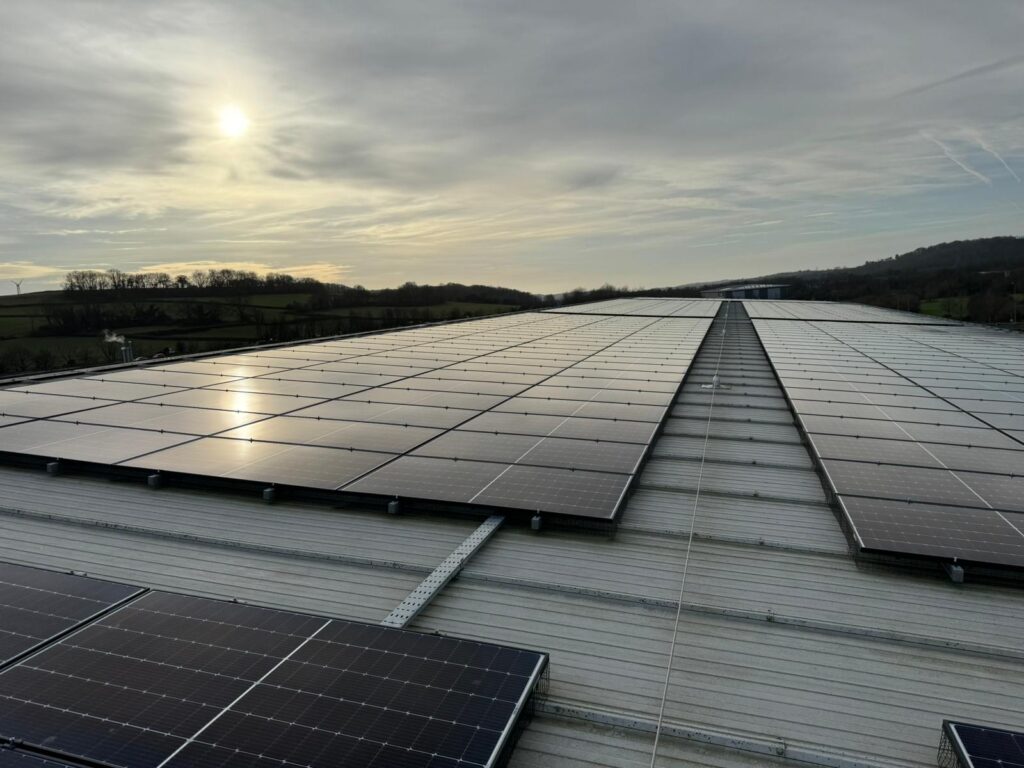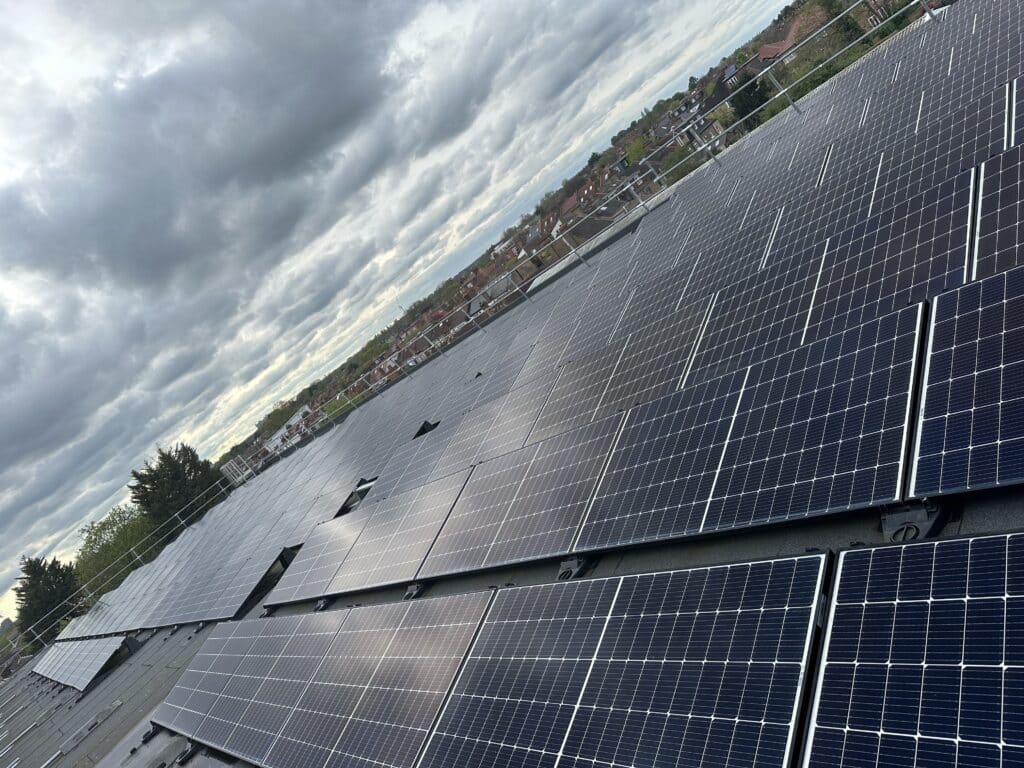Do Solar Panels Work in Winter? A Complete Guide for UK Businesses
When the dark mornings arrive, the frost bites, and daylight hours shrink, many people wonder if solar panels work in winter. It’s a valid question.
After all, Britain isn’t well known for its sunshine, and winter can feel like a long stretch of grey skies. However, the truth might surprise you. Solar panels still generate electricity during the colder months.
In this article, we will explore how solar panels perform in winter. We will compare solar panel output in winter and summer in the UK. We will also explain why solar power in winter remains a dependable source for your energy needs.
Do Solar Panels Work in UK Winter Conditions?
The simple answer is yes. Solar panels still produce electricity in winter. Their output is lower than in summer, but they don’t stop working when temperatures drop.
Solar panels generate power from light, not heat. This means that even on cold days, as long as sunlight hits the panels, they can keep producing energy.
In fact, solar panels are often better at converting light into electricity in cooler conditions. Overheating during summer can slightly reduce their performance, while the cool winter air helps the panels run efficiently.

Solar Panel Output Winter vs Summer UK
The real difference comes from the number of daylight hours and the sun’s position in the sky. Shorter days and lower sun angles reduce the amount of available light. This leads to less electricity generation.
Here’s a side-by-side comparison of winter solar panel output against summer:
Factor | Summer (UK, June) | Winter (UK, December) | Impact on Output |
Average daylight hours | 16–17 | 7–8 | Panels work fewer hours |
Sun angle | High | Low | Less direct light in winter |
Typical output (4kWp system) | ~350–400 kWh/month | ~120–150 kWh/month | Winter yields around 30–40% of summer |
Panel efficiency | Slightly reduced due to the lower temperature | Improved in cooler air | Helps offset shorter days |
It’s important to remember that solar energy in winter is less than in summer, but it’s not gone. A solar PV system might produce about one-third of its summer output, but it still makes a significant contribution to your electricity needs.
Efficiency of Solar Panels in Winter
The efficiency of solar panels in winter depends on three main factors:
1. Daylight Availability
Shorter days mean fewer hours to generate electricity.
2. Weather Conditions
Cloud cover reduces light, but panels still capture diffused sunlight.
3. Temperature Effects
Cold air actually boosts panel efficiency, even if the total generation is lower.
Some studies show that snowy conditions can help. Snow on the ground reflects extra light onto panels, which slightly improves output. However, if the panels are covered in snow, electricity generation stops temporarily until the snow slides off.

Solar Power in Winter vs Other Renewables
If you’re comparing energy technologies, it’s important to see how solar works compared to options like wind or biomass in winter.
Renewable | Winter Performance (UK) | Reliability |
Solar panels | Lower generation but steady | Works whenever daylight is present |
Wind power | Often higher output in winter | Weather-dependent, can be inconsistent |
Biomass | Consistent if fuel is available | Requires supply chain and storage |
Solar may not generate as much power in winter. However, it is still reliable and needs little maintenance.
How to Improve Winter Solar Panel Output
While you can’t change the British weather, there are practical steps to boost winter solar panel output:




These steps won’t magically turn December into July, but they can make your winter system performance more efficient.
Common Questions About Solar Panels in Winter
Do solar panels work on cloudy days?
Yes. Even in overcast conditions, solar panels can generate electricity from diffused light, though at lower levels.
Do solar panels work in snow?
Panels stop generating when fully covered. However, UK snow is usually light, and the natural tilt of panels helps snow slide off.
Do solar panels produce more electricity in cold weather?
Yes, cold air actually improves efficiency. The limitation in winter comes from fewer daylight hours, not temperature.
Why Solar Energy in Winter Still Matters
Even though winter solar panel output is lower, it still reduces reliance on the grid and lowers energy bills. Businesses and homeowners get consistent production throughout the year. The high yields in summer balance out the lower production in winter.
Think of it this way: solar power offers long-term savings and sustainability, not just the best performance in July. When paired with energy storage and smart planning, solar panels deliver a reliable renewable energy source all year long.
Solar Panels in Winter: Performance at a Glance
To give you a clear picture, here’s a quick summary table:
Question | Answer |
Do solar panels work in winter UK? | Yes, but with reduced output |
What affects winter performance? | Daylight hours, sun angle, cloud cover |
Does cold weather help? | Yes, panels are more efficient in low temperatures |
How much less electricity in winter? | Around 60–70% lower compared to summer |
Is solar still worth it? | Absolutely, the summer gains balance the winter dips |
Solar Panels in Winter Final Thoughts
So, do solar panels work in winter? Absolutely.
While solar panel output in winter compared to summer in the UK shows a clear difference, panels still generate electricity during the colder months. The efficiency of solar panels in winter improves due to lower temperatures, even if total generation decreases because of shorter days.
For businesses, solar energy in winter is important for reducing bills and supporting sustainability goals. Using solar panels with storage or other renewable sources helps keep energy supply steady all year.
Here’s the bottom line: if you’re considering installing solar, don’t let the British winter discourage you. Panels work all year, and the savings over time are impressive.
From winter efficiency to summer savings, solar panels offer value all year. Contact our experts today to start saving on bills and moving toward a greener future.
